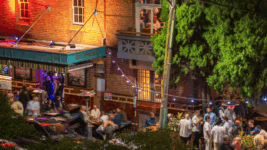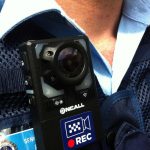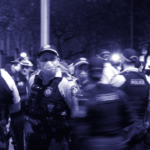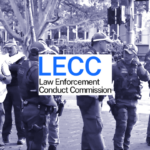The NSW Offence of Permitting an Intoxicated Person on Licensed Premises

The New South Wales government made a number of announcements on 11 October 2025 that included, within its third tranche of vibrancy laws to help improve the 24-hour economy, that an amendment would be made to the Liquor Act 2007 (NSW) ostensibly to ensure that vulnerable people on a night out are less likely to be assaulted on the streets, as the change will mean that pubs and clubs will no longer be required to exclude persons from licenced premises.
The proposed amendment is to the offence of permitting an intoxicated person on a licensed premises under subsection 73(1)(a) of the Liquor Act, which is a crime that can be charged against a licensee or their employee or agent who commits the act. This crime can only take place on licensed premises, and it’s broken when intoxicated patrons aren’t thrown out of an establishment.
“Right now, venues are required to immediately remove intoxicated patrons as part of their obligations under safe and responsible service of alcohol laws,” NSW premier Chris Minns explained in a 2 October social media post.
“The issue is that this can have the unintended consequence of pushing vulnerable people onto the streets, increasing the risk of violence, sexual assault and getting hit by a vehicle.”
The amendment is contained in the 24-Hour Economy Legislation Amendment (Vibrancy Reforms) Bill 2025, which was introduced into the NSW lower house by NSW minister for music and nighttime economy John Graham. And this is the third Vibrancy Reforms Bill tabled by the minister over as many years, as part of the Vibrancy Reform cross-government initiative launched in 2023.
Preventing excessive alcohol consumption
The law regarding intoxicated persons on licensed premises and removing them had gained increased emphasis circa 2003, as concerns around the responsible service of alcohol became prominent. But the result of this dodgy law has been that licensed premises insist intoxicated patrons be cast out, often late at night, in circumstances where a duty of care is disregarded.
The criminal offence of permitting an intoxicated person on a licensed premises is contained in subsection 73(1)(a) of the Liquor Act, with the offence of permit indecent, violent, or quarrelsome conduct on a licensed premises being contrary to subsection 73(1)(b) of the Act. And both these offences result in the doer of the action being liable to a fine of up to $11,000.
Subsection 73(4) of the Liquor Act further stipulates that a licensee is understood to have permitted intoxication on licensed premises, other than on a vessel, unless they or their employee or agent has refused to serve that individual alcohol on recognising their intoxication and asking them to leave the premises, and on occasion of this being refused, the premises must then call for police assistance.
Otherwise it can be shown that the licensee or employees undertook the steps set out in Liquor and Gaming intoxication guidelines when dealing with a drunk client, or if it can be shown that an “intoxicated person did not consume liquor on the licensed premises”, this also relieves the burden of responsibility upon a licensee.
In terms of an intoxicated person on a vessel, the licensee or employee is required to stop serving alcohol and to contact police about the person’s removal and to then follow the responding officer’s instructions, or otherwise, intoxication guidelines can be applied or if it is shown that the person turned up to the vessel intoxicated, then the burden is again removed.
Section 73 of the Liquor Act contains a range of duty to prevent excessive alcohol consumption laws. Further offences contained in the section include the offence of a licensee or their employee selling or supplying an intoxicated person with liquor on a licensed premises, which also carries a fine of up to $11,000.
The last offence in this section involves someone other than the licensee or their employee supplying an intoxicated person with alcohol on a licence premises, which is contrary to subsection 73(3) of the Act, and it can see a transgressor fined up to $1,100.
Further, subsection 73(5A) outlines that the Independent Liquor and Gaming Authority secretary is responsible for issuing intoxication guidelines, while subsection 73(6) states that if an on-premises licence relates to a catering service, references within section 73 don’t pertain to “private domestic premises”, except for the offence of selling to or supplying alcohol to a drunk person still applies.
The proposed amendment to the offence
“The bill… amends the Liquor Act to introduce an exemption to the offence for permitting intoxication on a licensed premises where that person is seeking medical care or transport home,” explained the NSW nighttime economy minister on 14 October.
“Right now, the law forces venues to choose between their obligations under law and keeping their patrons safe by mandating that an intoxicated patron be removed from the venue even if that means they are left to fend for themselves, make their own way home or are put into a more dangerous situation,” Graham added.
The amendment would remove existing subsection 73(5A) and replace it with subsections 73(5A) through to 73(5D). Proposed new subsection 73(5A) stipulates that the offence of failing to remove an intoxicated person from a licensed premises is not committed when it is assessed that an intoxicated person needs medical assistance or transport and that has been sought.
Further if that is the case and the person is waiting on medical assistance or transport, then the licensee or employee must have refused that person the sale of alcohol and that person should then be monitored.
In addition, the presence of the intoxicated person must be noted in the register in order to maintain the offence has not been triggered, and the licensee must also ensure the person did not cause any disturbance or enter the gaming room.
The incident involving the intoxicated person must then be recorded in a relevant register, as per proposed subsection 73(5B) of the Liquor Act, that’s maintained by the licensee in accordance with proposed new section 72L of the Act, which is the law that now sits in section 56 of the Liquor Act, or it otherwise refers to a register maintained in accordance with the new section 73(5B) of the Act.
Proposed subsection 73(5C) would ensure that subsection 72L(4) and 72L(5) apply to any register maintained in line with proposed subsection 73(5B), which involves allowing police officers to inspect the document and take any relevant copies of its details, as well as that any information noted in a proposed subsection 73(5B) register must be held on to for at least 3 years after it was recorded.
Proposed subsection 73(5D) of the Act would require that the ILGA secretary issue guidelines on the prevention of intoxication on a licensed premises and further, these must be made publicly available.
The NSW nighttime economy minister further provided examples of when it might not be appropriate to simply eject a drunk person from a pub or a club, which involved “women out with friends”, along with “individuals in regional areas where transport is not available and it may take a while for a taxi or family member to arrive”.
“While the laws regarding removing intoxicated patrons are designed to manage the risks associated with alcoholrelated harm, it can also be inappropriate for intoxicated patrons to be evicted in certain circumstances,” Graham added in respect of the law.








